BEIRUT – In a small shop located in a busy and dense area of Beirut, Hasan El-Makary is weighing a container of still hot and fragrant mufataka, a traditional dessert rarely found in other shops in the Lebanese capital.
“I’ve been in this shop for 50 years, but we started specializing in making mufataka 30 years ago,” said Makary, 73, from his modest shop with old decorations and low ceilings.
Mufataka, a type of rice pudding made with turmeric, tahini (sesame paste), sugar and pine nuts, is a traditional dessert in Beirut but little known outside the city.
Makary, 73, explained that he used to sell other sweets, but when the demand for mufataka increased, he only concentrated on making the yellow pudding with his cousin, who is also his business partner.
“In the beginning you add turmeric, that’s the most important thing, then tahini, sugar and rice… we cook it on a slow fire,” he said.
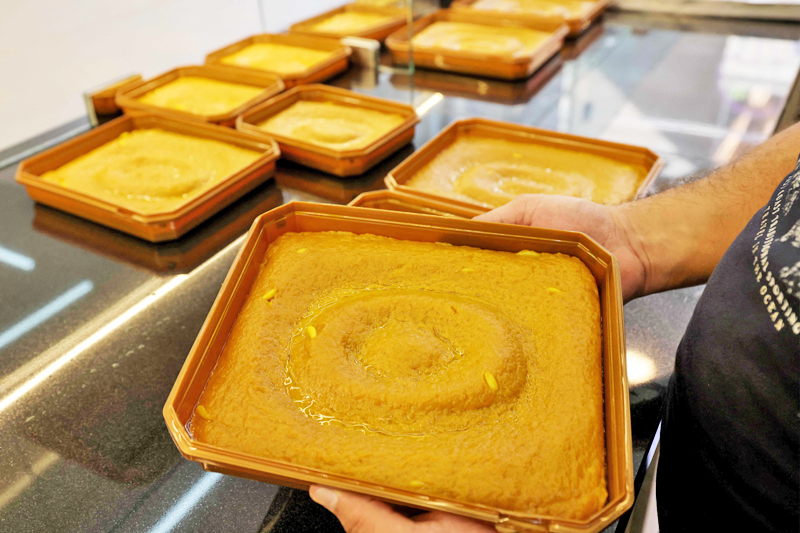
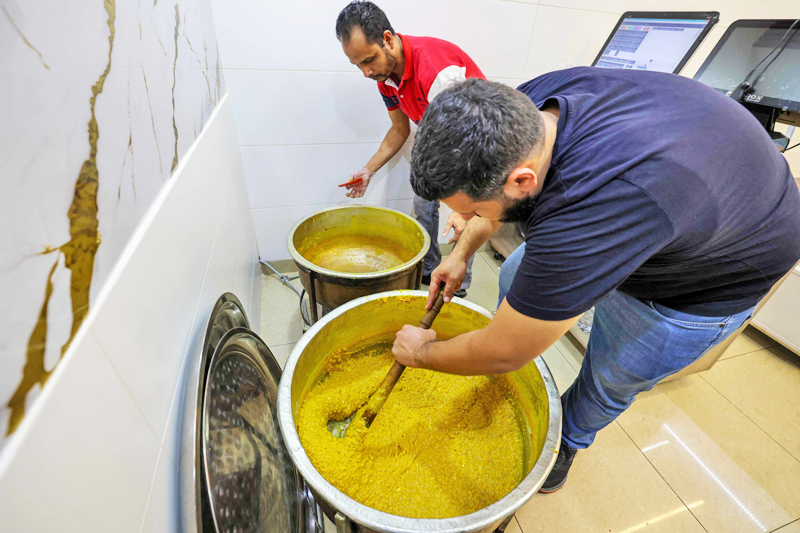
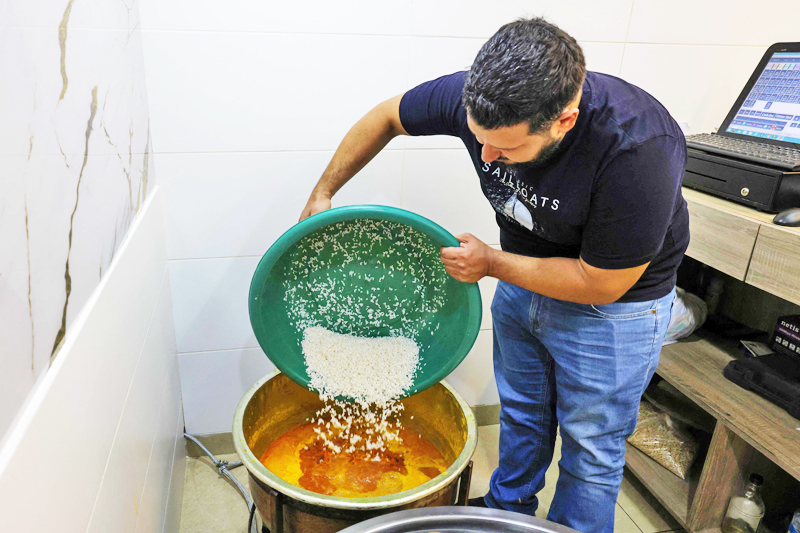
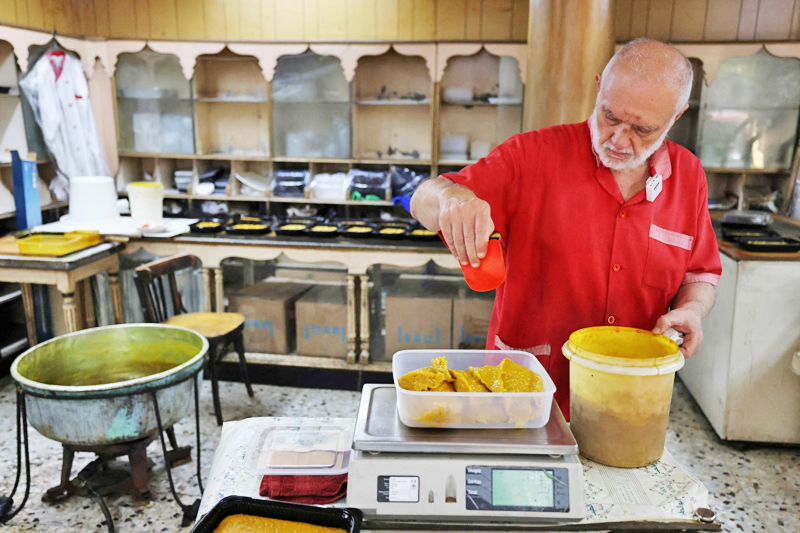
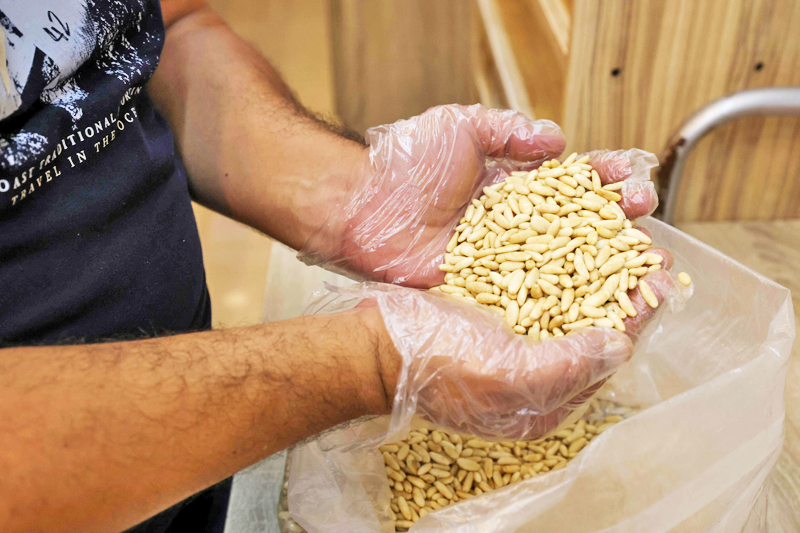
The rice has to be soaked overnight and Makary will arrive at the shop as early as 5am to prepare the mutafaka which takes about four hours and requires frequent stirring of the mixture.
His father started a mufataka business despite initially doubting that people would pay for meals that were usually made at home.
Throughout the store, plastic containers of mufataka are stacked on trays, awaiting customers who come to order through small windows from the busy street.
Customer Iman Chehab, 55, was buying mufataka for his mother who used to make the dish often.
“My mother is old and can’t stir… it takes a lot of energy,” said Chehab, who works in human resource management.
For those from Beirut, the dish is ‘something traditional’, he told AFP. Places like this Makary shop are ‘the old faces of Beirut that we love and always remember’.
HERITAGE
Not far from the busy area of Beirut, Samir Makari, 35, is carrying on a family tradition.
In a modern shop that also sells Arabic sweets such as baklava, Makari tends a large copper pot of mufataka behind the counter, stirring it with a long wooden handle.
He weighed and mixed the sugar, tahini paste, and pine nuts in a second pot before mixing them together.
In the past, mufataka was only made once a year on the last Wednesday of April, where families gathered on Beirut’s public beach to celebrate an event known as ‘Ayub Wednesday’, known for its patience, Makari said, adding that the trait was also needed to make agreement
On the walls of his shop, which he runs with his brother, are pictures of his father and grandfather at work.
He said he sometimes makes mufataka twice a day depending on demand, with some customers bringing him out from Beirut to introduce the dish to people who don’t know it.
At the original store, Makary said he’s glad his children are carrying on the tradition. Mufataka is part of my heritage and the family has passed it down from generation to generation. – AFP

